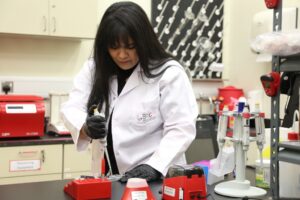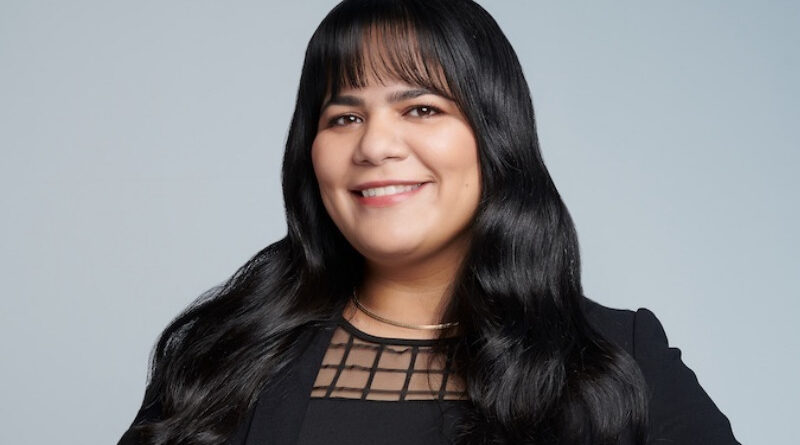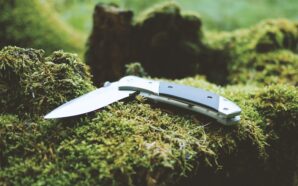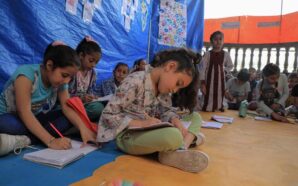Tell us about yourself and what inspired you to pursue your field of expertise?
I am a junior scientist who started her journey in science at Qatar University. After completing my graduate studies from The University of Nottingham in the UK, I decided to return to Qatar University as I saw a great potential for science. My work is multidisciplinary but the idea of the awarded project came from my work with COVID-19. During the pandemic, a huge number of lives were lost due to secondary infection or unknown etiologies. The number of patients admitted and the time delay of traditional testing made it impossible to test each patient, because of that a standardized method of treatment was adopted, however many patients fell through the cracks since secondary infections went undetected. As a biomedical researcher who is always eager to use advanced technologies and implement new methods, I felt responsible to contribute to advancing diagnostic techniques for the greater goal of saving lives and thus settled on this project to advance that goal.
Can you take us through your research and what challenge you hope to achieve?
 The research is a project that aims to develop a fast, reliable, and cost-effective protocol for microbial analysis that will allow for real-time diagnosis. A key objective is accessibility; any biomedical laboratory should be able to implement the protocol. The inception of the project was motivated primarily by recent global health events, the COVID-19 pandemic and the Monkeypox outbreaks. The burdens and challenges that were experienced by the health sector and diagnostic laboratories highlighted that methods for rapid detection of infectious agents are critical for better patient prognosis. Currently, in clinical settings, a traditional microbiology laboratory can take anywhere from three to seven days to produce results, with false negatives common when antibiotics are used. This has prompted us to devise a low-cost protocol that has the potential to reduce detection time to 5hrs.
The research is a project that aims to develop a fast, reliable, and cost-effective protocol for microbial analysis that will allow for real-time diagnosis. A key objective is accessibility; any biomedical laboratory should be able to implement the protocol. The inception of the project was motivated primarily by recent global health events, the COVID-19 pandemic and the Monkeypox outbreaks. The burdens and challenges that were experienced by the health sector and diagnostic laboratories highlighted that methods for rapid detection of infectious agents are critical for better patient prognosis. Currently, in clinical settings, a traditional microbiology laboratory can take anywhere from three to seven days to produce results, with false negatives common when antibiotics are used. This has prompted us to devise a low-cost protocol that has the potential to reduce detection time to 5hrs.
How has it been navigating such a male-dominated field, what are the challenges you faced?
I believe that anything good doesn’t come easy! A trip in the science fields is a bumpy ride… As such, regardless of the obstacles faced, whether it be male dominance, the shortage of funding and resources, the long working hours and many more, working hard with passion and never giving up is the key to take on a journey in science and I firmly believe that it is the key to success as well.
If you could give the next generation of female scientists one piece of advice, what would it be?
My advice to any women aiming for a career in science is that your hard work will pay off, so chase after what you are passionate about with all of the power that you have.
How can we encourage more women and girls in STEM fields?
Award like the L’Oréal-UNESCO For Women in Science is one way to show women that they are appreciated and that their work is being recognized. This kind of recognition will definitely encourage more women to pursue STEM field as it conveys the message that there are women in the field, they are succeeding and you could do the same.











